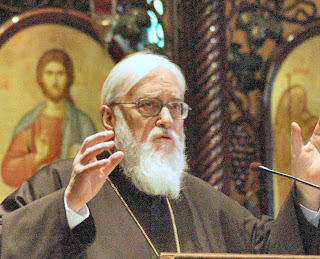Monday, August 31, 2009
Execution of the Innocent
Texas may very shortly become the first state to recognize that they have executed a legally and factually innocent person. This piece on the Cameron Todd Willingham case is long, and it's in the New Yorker, so you'll have to put up with those insufferable cartoons, but it's a fascinating and heartbreaking tale.
Wednesday, August 26, 2009
Tuesday, August 25, 2009
Tuesday, August 18, 2009
Monday, August 17, 2009
The Center Way
My friend Jesse has started a blog on the healthcare debate, to which I will also be contributing. I may occasionally post things both here and there, but I'm probably too lazy to do that. Anyway, check it out:
http://thecenterway.wordpress.com/
http://thecenterway.wordpress.com/
Tuesday, August 11, 2009
Quote
"For me to be a Spirit-bearer is to realize all the distinctive characteristics in my personality; it is to become truly free, truly myself in my uniqueness. Life in the Spirit possesses an inexhaustible variety; it is wrong-doing, not sanctity, that is boring and repetitive. As a friend of mine, a priest who spent many hours each day hearing confessions, used to remark wearily: 'What a pity there are no new sins!' But there are always new forms of holiness."
Tuesday, August 4, 2009
Free for All
 Tim Conder and Dan Rhodes, two of our pastors at Emmaus Way, have a new book out now. It's called Free for All: Rediscovering the Bible in Community. I'll post a review once I get my copy, but for now, here's the description from the back cover:
Tim Conder and Dan Rhodes, two of our pastors at Emmaus Way, have a new book out now. It's called Free for All: Rediscovering the Bible in Community. I'll post a review once I get my copy, but for now, here's the description from the back cover:Say "free-for-all," and most people imagine a brawl. But what if we had a free-for-all with the Bible? What if we opened up to aggressive interpretation within the communities of our local churches? In this provocative book, Tim Conder and Daniel Rhodes explore the critical need to encounter Scripture collectively, and then they invite us to listen in as a group from their church delves into four Bible passages--the obscure, the emotive, the familiar, and the controversial. Free for All makes a compelling case for communities as a valid authority for biblical interpretation. The authors show that communities are capable of breaking open the texts in fresh and surprising ways, unleashing them anew into our lives.
Subscribe to:
Posts (Atom)





